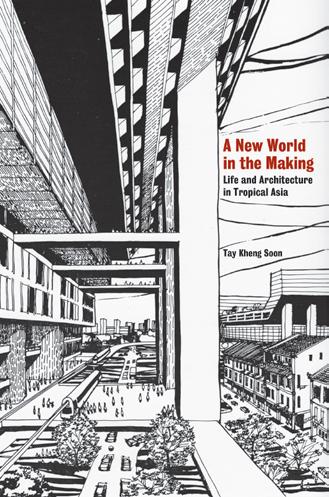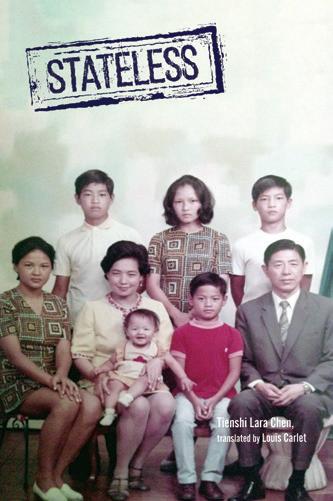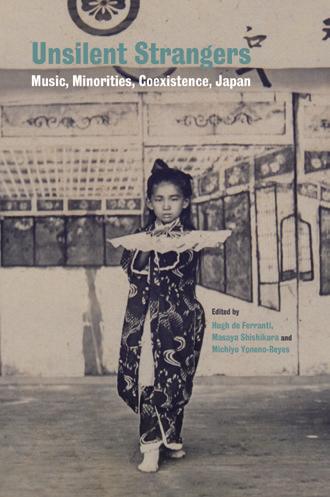
3 minute read
A New World in the Making: Life and

Architecture in Tropical Asia
Advertisement
Veteran architect Tay Kheng Soon’s book brings together memoir, a selection of writings on identity, landscape and belonging, and on the architecture and urbanism most appropriate for a tropical city in Asia. Born in British-ruled Singapore, Tay was deeply engaged in the debates about building a new world that attended the end of colonialism. His focus, but far from his only concern, was Singapore’s built environment—and its spiritual one—since the early 1960s. Architecture, he says, is politics by other means. As Singapore moved further into what Tay describes as “ruthless pragmatism”, the cost of his critical posture became more clear, and he left for some years.
Kheng Soon stayed his own course, later returning to Singapore and building his own firm. He became sought after around the world for his thoughts on regionalism and tropical architecture. He taught at the NUS School of Architecture, headed the Singapore Institute of Architects, and was Founding Chair of independent arts centre The Substation. Ever ready with the trenchant one-liner, and a willingness to provoke, to challenge orthodoxy, Tay Kheng Soon occupies a unique position in Asia’s intellectual and cultural landscape. Things must change, says Tay Kheng Soon. Or, maybe, he admits, it’s just him. The book is a must-read reflection on tropical Asia, on architecture and urbanism, always looking ahead to the always urgent task of building a new world.
Tay Kheng Soon is one of Singapore’s most important public intellectuals and thinkers, and a pioneering architect of Singapore’s post-independence era.
May 2023
Paperback • S$28 / US$24
ISBN: 978-981-325-169-4
256pp / 229 x 152mm
36 b/w images
Tienshi Lara Chen
translated by Louis Carlet
Stateless: Ethnography of Statelessness
Written by a Stateless Academic
“In the springtime of the year that I was twenty-one, I found myself stuck at the border between two familiar countries, unable to enter either. I had never felt my statelessness so keenly.”
Japan’s 1971 termination of diplomatic ties with the Republic of China left 9,200 Chinese residents stateless. Tienshi “Lara” Chen was one of them, born to Chinese parents in Yokohama’s Chinatown. What does it mean to be stateless? What does it feel like?

In a lively blend of life writing, auto-ethnography, and study of stateless communities around Asia, this book unpacks the idea of citizenship by showing the hidden everyday narratives and lived experiences of stateless persons who have no legal ties to any nation state. Originally published in Japanese, this adapted and updated English edition critically engages with questions of borders, mobility, belonging, and identity.
We follow Chen’s engaging autobiographical account of her bi-cultural upbringing and Japanese education, and how her experience of statelessness eventually led her into a career spanning academia and activism. Across different levels of analysis, the author points out the contradictions inherent in the concepts of nationality, nation-state and citizenship, in a world where individual nationality, identity and experience are increasingly complex. She concludes that the current system of regulating individuals with citizenship is unworkable in the long run. Stateless is a fascinating read on borders, states and identities.
Tienshi Lara Chen is a professor at the School of International Liberal Studies, Waseda University. Louis Carlet is a translator and interpreter.
September 2023
Paperback • S$36 / US$34
ISBN: 978-981-325-232-5
296pp / 229 x 152mm
12 b/w images
de Ferranti, Masaya Shishikura and Michiyo Yoneno-Reyes editors
Unsilent Strangers: Music, Minorities, Co-existence, Japan
This collection of essays on the music of migrant minorities in and from Japan examines the central role music plays in the ongoing adjustment, conciliation and transformation of newcomers and “hosts” alike. It is the first academic text to address music activities across a range of migrant groups in Japan––particularly those of Tokyo and its neighbouring areas. It is also the first to juxtapose such communities with those of Japanese emigrants as ethnic minorities elsewhere. It presents both archival and fieldwork-based case studies that highlight music in the dynamics of encounter and attempted identity making, under a unifying framework of migration.

A radical change in policy with the 2019 introduction of a new “Specified Skilled Worker” visa category marked the beginning of Japan’s “new immigration era” (imin gannen). The authors in this volume interrogate and shed light on the bureaucratically disseminated slogan of tabunka kyōsei, rendered in English as “multicultural coexistence”. The concept itself and the many problems of realizing this ideal are examined through ethnography-based accounts of current minorities, including South Indians, Brazilians, Nepalis, Filipinos, Iranians and Ainu domestic migrants, and in light of comparative historical accounts of California and Australia. This volume will be of interest to ethnomusicologists, students of the cultures of migrant communities, and those engaged with cultural change and diversity in Japan and East Asia.
Hugh de Ferranti is a researcher of Japanese music culture and history. He is the author of The Last Biwa Singer (Cornell University Press, 2009).
Masaya Shishikura is an associate professor at Huizhou University and a research fellow at Tokyo Institute of Technology.
Michiyo Yoneno-Reyes is an associate professor at the Institute for Advanced Studies on Asia (IASA), University of Tokyo.
June 2023
Paperback • S$42 / US$38
ISBN: 978-981-325-236-3
352pp / 229 x 152mm
16 figures, 11 tables, 37 b/w images



